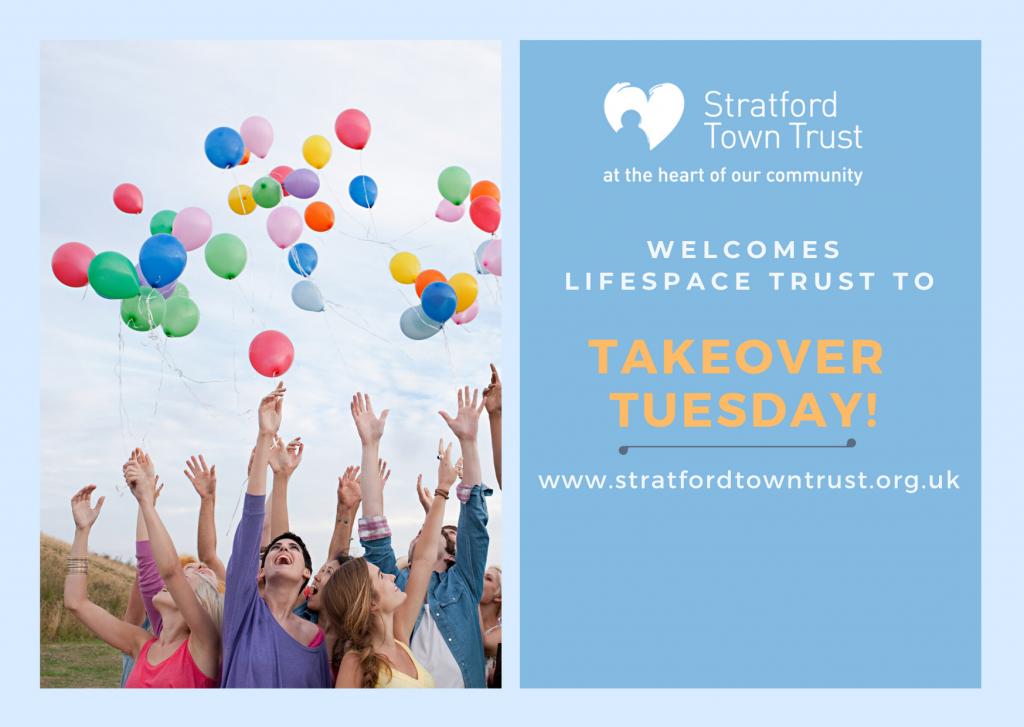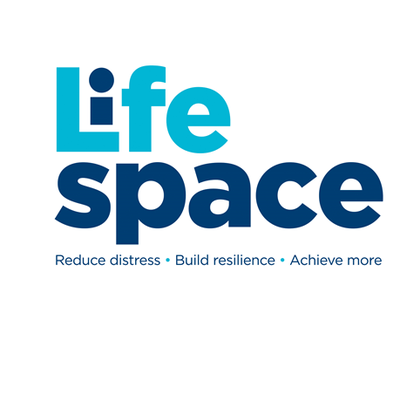Each week, we’re inviting one of the many charities or community groups in Stratford to takeover our social media for the day with a series of posts outlining what they are doing during the COVID-19 pandemic to show our support. The full case study will appear here on our blog.
This week, we hear from Lifespace Trust, a charity that mentor children and young people to help them build resilience and reduce stress. Here, Rachel Key, CEO, tells us how they have adapted their service while they are unable to deliver face to face mentoring.
How have you adapted the services you provide during the Covid-19 pandemic?
Since the charity started 16 years ago, Lifespace mentors have worked with children and young people on a one-to-one face-to-face basis in primary and secondary schools across South Warwickshire helping them to reduce distress, build resilience and achieve more. We have never operated in any other way. From the first week of lockdown we offered phone and email contact to students we were already working with. After Easter we also offered video one-to-ones and will continue to offer all three options as schools welcome more students next half-term. After enquiries from several schools, we will also be piloting online group workshops on “hot topics” in social, emotional and mental health, a first for us.
Pre-lockdown we didn’t have any phones or appropriate email addresses so we needed to do a lot, quickly. As I had joined the charity just three weeks before lockdown I am incredibly grateful for the trust and support of our small team, our volunteer mentors and the Board of Lifespace.
What’s the key thing that has surprised/pleased you?
Our mentors’ commitment to being there for children and young people wasn’t a surprise but it was impossible not to be moved by their enthusiasm to embrace new ways of working, even when they didn’t know how well they would work.
The first surprise has been how well both phone and email have worked, each working differently for different students, including those with additional needs. The second surprise has been the response from parents, carers and grandparents who have been incredibly grateful for our support for them and our mentees. After one mentoring session by phone, a parent said to the mentor “thank-you, I feel like I’ve got my son back”. And finally, we are always grateful when our mentees trust us enough to share their thoughts and worries but during lockdown when that has often been even more difficult? They have been amazing.
Everyone at Lifespace has been inspired by the leadership and pastoral teams at our partner schools. We are incredibly proud to be working with them to support their students.
What are the biggest challenges you are facing?
The most immediate challenge is how we can support the youngest children we work with including those mentees we see as part of the Early Help contract with Warwickshire County Council.
Like many small charities, an ongoing challenge is how to balance what we do every day with strategic development so that we can work with more children and young people. Our partner schools all expect demand to grow so how can we make sure that, in partnership with them and local statutory and voluntary providers, we can be ready to meet it?
Funding is critical, and we are very grateful to the organisations and individuals which support our work, but it is not the only issue. Lockdown has highlighted the urgent need for better digital skills across the organisation. Despite a growing range of online options, we know that children and young people still prefer to build relationships in person. We want to explore how technology can increase both the impact and reach of our face-to-face mentoring, particularly in South Warwickshire where access to services can be limited.
Can you give an example describing the impact you’ve made on an individual/group of people?
Our mentoring is led by mentees and during lockdown they have asked for support on issues that as diverse as they are, from 10 to 18 years old…going to sleep (and breathing techniques that will help); finding reasons to get up/get dressed and planning their days so that they balance work, rest and sleep and amaze themselves at what they can achieve; loneliness and how to reach out to their friends; how to share their feelings with their family; where they can go for specialist help and advice, and sometimes being there while they make contact; managing their fears about the future, including grade assessments, and suggesting practical actions they can take; how to manage their anger/frustration at not being able to see siblings or other family members; and worries about their own mental health and the physical and mental health of the people they love.
It has been heart-warming to hear one Deputy Head at a local secondary school say “Lifespace mentors have been absolutely invaluable, a focus for those young people when they need it most” and another say that “Lifespace is integral, their mentors are part of our team”.
Facts about who you have helped and how
The week before lockdown we were working with 190 young people in 12 local secondary schools. Working with our partner schools, we identified which students their staff would support directly and which would be offered mentoring support by phone or email. While we have offered video support, our mentees are much more likely to talk to us if they have privacy and, in a busy household, this can be easier to achieve using these two options. We are now in contact with nearly half of our mentees.
At this time of year large numbers of school referrals are linked to exam anxiety and stress, for many this has now disappeared, for others it has been replaced by other fears and worries. After the Easter holidays we started building new mentoring relationships with students who were feeling the impact of lockdown and this number is growing weekly.
Meaningful contact with children of primary school age has been more challenging because play is such an important element of mentoring vulnerable children in this age group. They often don’t want to talk about how they are feeling, they just want our mentors’ focussed and undivided attention – a temporary refuge from everything else that is going on in their lives. We have been supporting four of the 20 youngest mentees by phone. After half term, as more of them are in school, we will be using video too.
What could the community in Stratford do to support you?
We urgently need more men to volunteer as mentors, particularly in Stratford. It’s a considerable commitment, from the initial three-day induction and ongoing training to a half-day in school each week, but all of our mentors tell us that they feel they get more than they give.
If you want to help local children and young people feel more positive about themselves and their lives, as a potential mentor, partner or supporter please get in touch – rachel.key@lifespace.org.uk.
Useful info and contact details
If you think that your child could benefit from a Lifespace mentor, please talk to their school about how we could help or get in touch with us directly.


